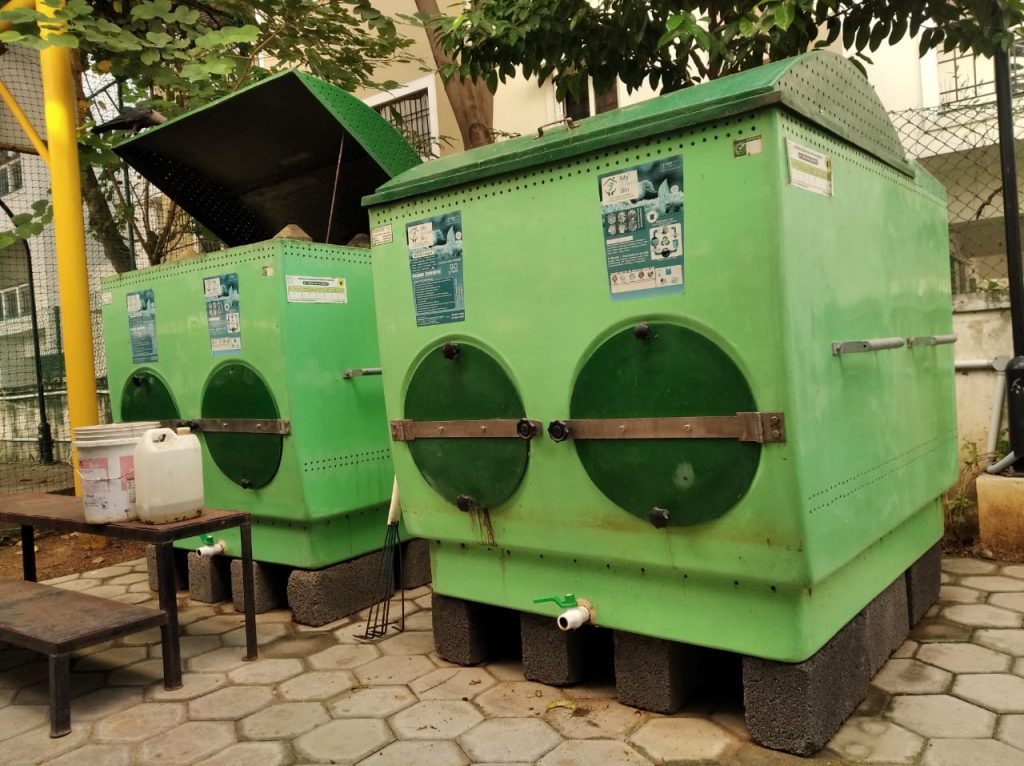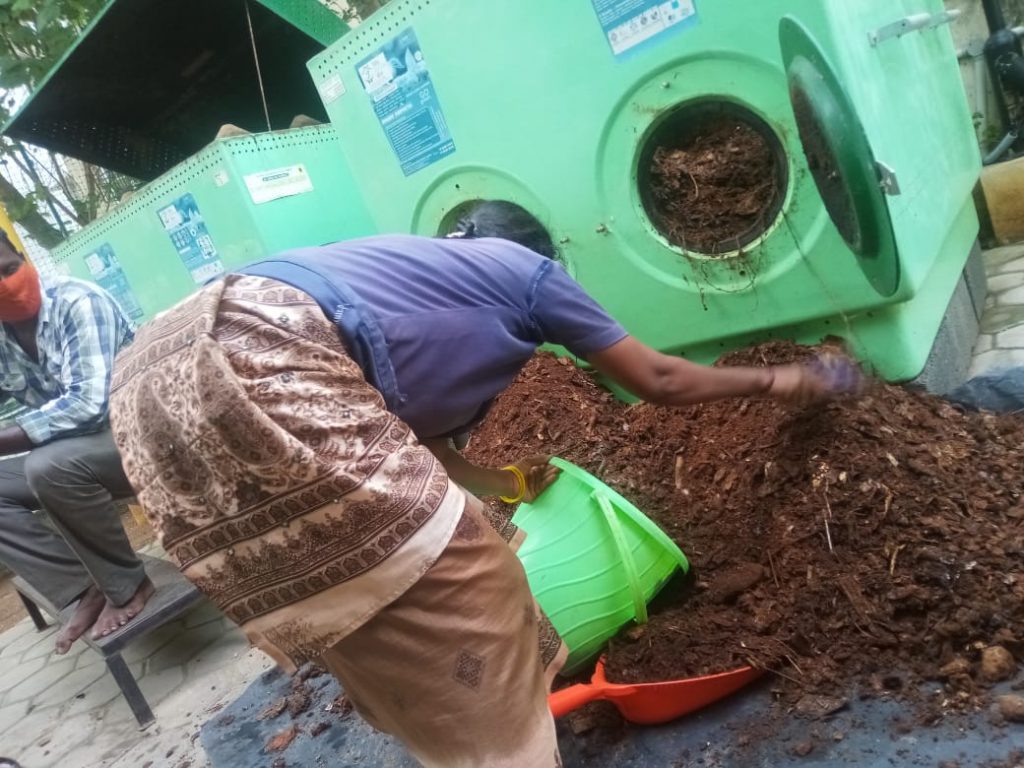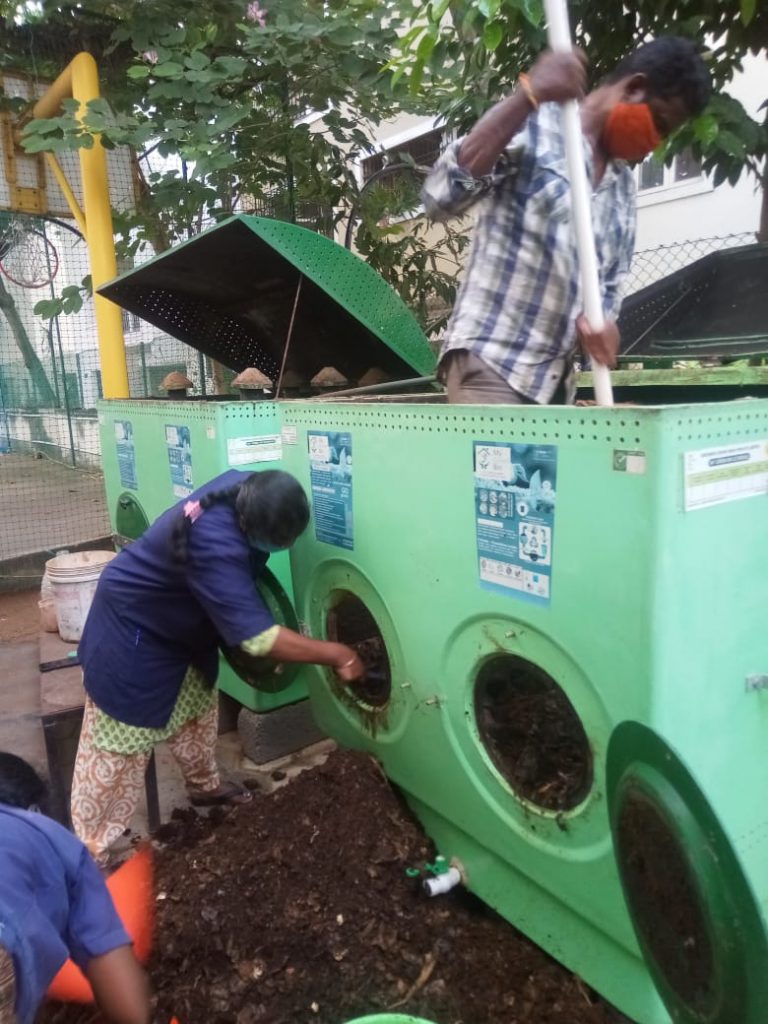
The Central Park South Society can be likened to the Phoenix rising from the ashes in the aftermath of the Chennai floods in 2015. The natural disaster opened the residents’ eyes to the unfortunate reality of waste management in India. What followed is a story that can inspire many societies around the country.
The apartment complex is spread over 2,86,344 sq ft with 172 apartments in 11 blocks. It is difficult to miss as it is centrally located and has direct access to the main road. But this location proved to be a bane during the 2015 floods when the society was among the worst affected apartment complexes in the city. More than 5 feet of storm water entered the complex and wreaked havoc.
“The floods did however make us sit up and question why this happened. Some of the answers were very obvious. Unplanned development, encroachment of wetlands which are natural sinks, poorly designed drainage systems, increasing landfills and so on,” says Sumitha Iyer, resident waste warrior, who led a brave new movement from the front. The society decided to solve its problem from the roots rather than fix it superficially.
From awareness to action
Even before the floods the society members had understood that waste segregation was the way forward to reduce our ever-growing landfills. They had a process in place for segregating household waste but it entailed separating dry waste only. There was no provision for wet waste management. “After the floods, we decided to take it to the next level by implementing 3-way segregation”, Sumitha says.

Getting started
They adapted the 2bin-1bag model which was introduced to them by a Bangalore based waste management company called WasteWinn. This model uses two-coloured bins (green and red) to collect organic and reject/hazardous domestic waste respectively and a bag to collect the recyclables. Once the implementation plan was formulated, the core team carried out an extensive door-to-door campaign to educate the residents, housekeeping staff and domestic help such as house help and cooks. For the first 50 days, active resident-volunteers accompanied the housekeeping staff to every house to clear the doubts and re-educate residents wherever required.
Central Park South Society produces about 80-100kgs of organic waste every day making it a bulk generator required to handle wet waste management and disposal onsite. After the awareness generation campaign was done, the team began the research and ground work in order to begin composting. They eventually zeroed in on My Green Bin composters, investing in two composting units of 2,000 litres capacity each. The composting process was started in earnest.
Trench composting (burying waste directly into trenches in the garden) was initiated as well. The team used one part of the organic waste in trench composting wherein a pit about 4X4 with a depth of 2-3 ft was dug and everyday about 20 kgs of organic waste was dumped into it. This was then covered with dry leaves and mud. This process is continued till the pit is full and closed.
The team of volunteers worked closely with the housekeeping staff to ensure smooth functioning of the composting system. Reports were sent daily via a WhatsApp group between the block representatives and the housekeeping staff. The team members continued to educate newcomers since it was imperative to keep the positive momentum going without missing any links in the chain. The society also monitored the different aspects of the whole process to see if any corrective measures were required. The wet, recyclable and other waste was regularly weighed and recorded.

Tasting success
At first, there were challenges such as bad odour but after tweaking the composting procedure and identifying loopholes in the system, the process took off smoothly.
Today, Central Park South Society produces about 300-400 kgs of compost per month. The society provides the compost to the residents for free. The compost is also used for vegetable gardening and for building a green belt of plants around the buildings. Dry waste is recycled. The society gets Rs 2000-3000 per month from the sale of its recyclables. The proceeds are distributed among the housekeeping staff as an incentive.
Sumitha says, “Our efforts are bearing fruits. Residents who were hesitant earlier are now active participants in this initiative. Most importantly it’s really overwhelming to see our kids learning the right practices of waste management at a young age. The real icing on the cake is when we received the The Green Award from the Chief Minister of Tamil Nadu last year. This award was instituted by the Tamil Nadu Pollution Control board for RWAs doing exemplary work in the field of solid waste management among other things.
The society, led by Sumitha and team, plans to sustain its efforts and expand them further. They are already minimising the amount of hazardous waste generation and sharing their waste management practices with other apartment complexes who are willing to start their own journeys towards green living.

Lessons for other societies
“Composting is not an exact science. Sometimes we need to learn by trial and error to get the process running smoothly. Communities looking to do in-house composting should not give up when there are small hiccups. Always try to find practical solutions and keep it going,” says Sumitha.
She recounts the initial hurdles in convincing fellow residents to segregate waste into 3 categories. “Those who were used to using plastic liners had to now spend some time and effort to put the waste in the correct bins or bag. They had to clean their bins everyday as no liners were allowed. Sanitary and medical waste had to be wrapped in newspapers before disposal while all recyclables had to be cleaned and dried before placing them in the disposal bag. All this requires patience and perseverance especially since it is a long-term behaviour change. But, the residents showed true dedication to the cause from inception to execution.
Central Park South Society has successfully created a waste management system that not only works efficiently, but also serves as a fine example of the spirit of a community that never gave up on the collective vision of clean and green India.
Images courtesy Sumitha Iyer.
